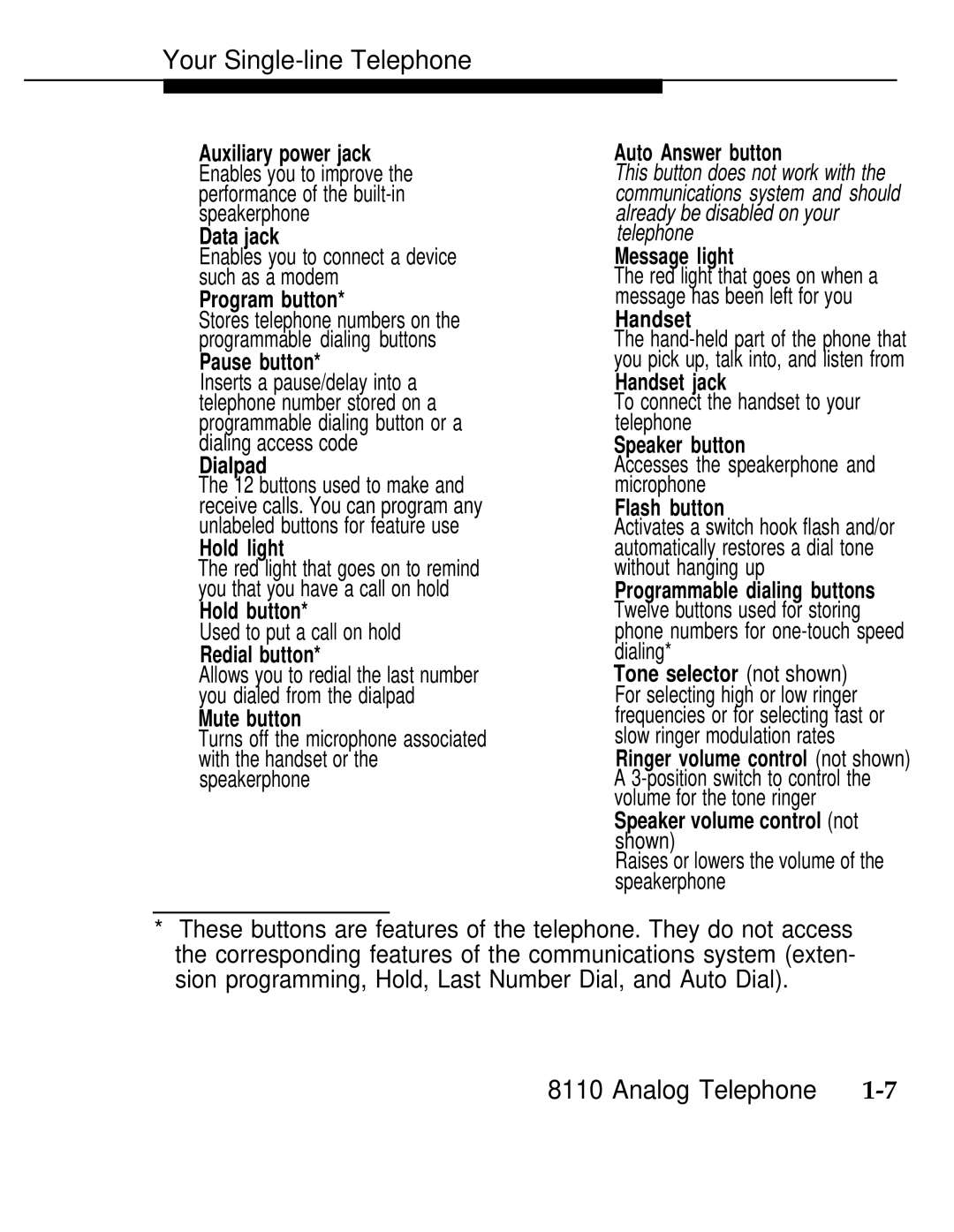
Your
Auxiliary power jack Enables you to improve the performance of the
Data jack
Enables you to connect a device such as a modem
Program button*
Stores telephone numbers on the programmable dialing buttons
Pause button*
Inserts a pause/delay into a telephone number stored on a programmable dialing button or a dialing access code
Dialpad
The 12 buttons used to make and receive calls. You can program any unlabeled buttons for feature use
Hold light
The red light that goes on to remind you that you have a call on hold
Hold button*
Used to put a call on hold
Redial button*
Allows you to redial the last number you dialed from the dialpad
Mute button
Turns off the microphone associated with the handset or the speakerphone
Auto Answer button
This button does not work with the communications system and should already be disabled on your telephone
Message light
The red light that goes on when a message has been left for you
Handset
The
Handset jack
To connect the handset to your telephone
Speaker button
Accesses the speakerphone and microphone
Flash button
Activates a switch hook flash and/or automatically restores a dial tone without hanging up
Programmable dialing buttons Twelve buttons used for storing phone numbers for
Tone selector (not shown) For selecting high or low ringer frequencies or for selecting fast or slow ringer modulation rates
Ringer volume control (not shown) A
Speaker volume control (not shown)
Raises or lowers the volume of the speakerphone
*These buttons are features of the telephone. They do not access the corresponding features of the communications system (exten- sion programming, Hold, Last Number Dial, and Auto Dial).
8110 Analog Telephone |
